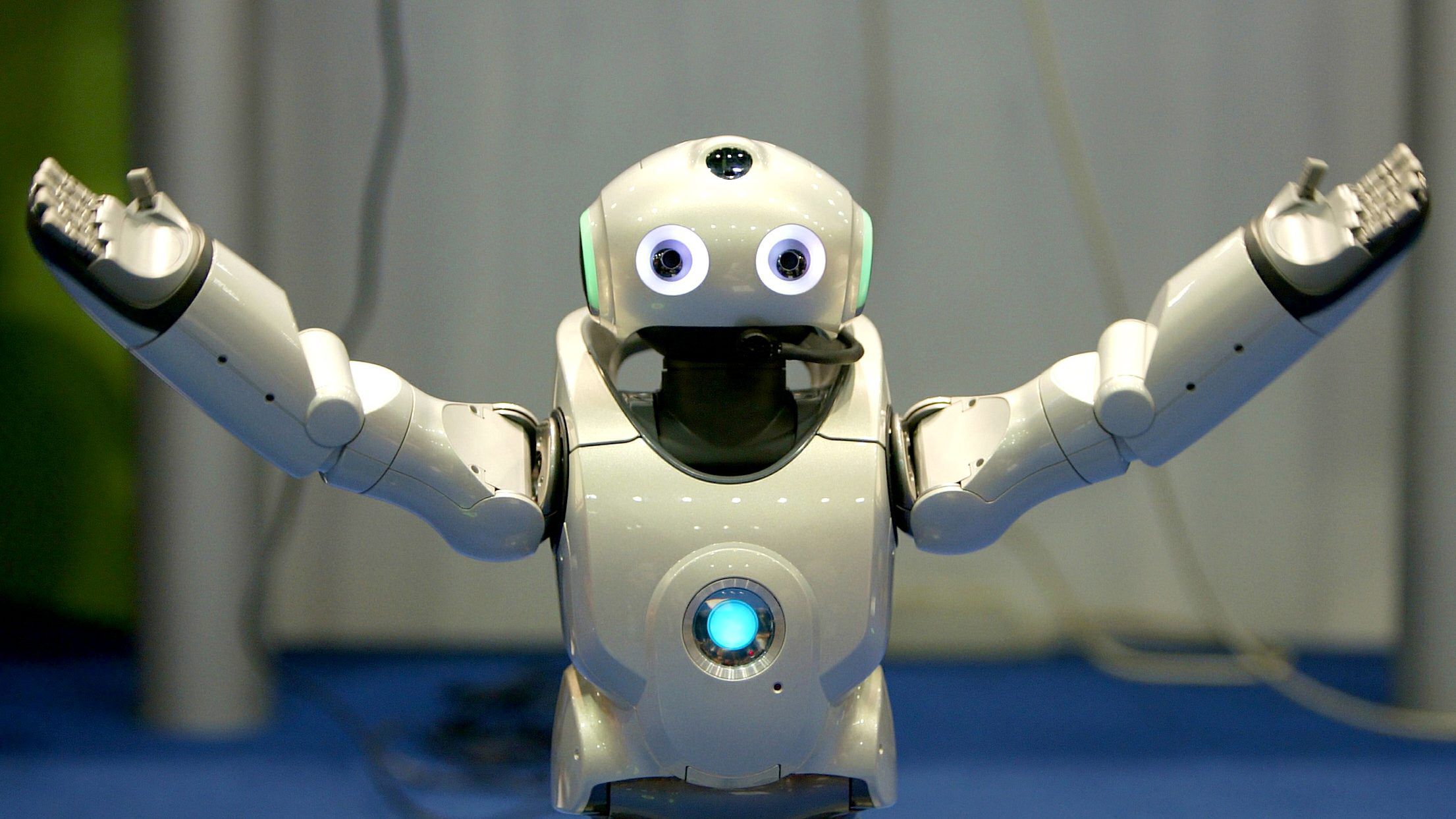It’s Saturday morning and Toronto-born Tommy Moffat is hunched over his computer. The award-winning programmer is fixated on getting the algorithm behind his A.I.-fuelled robot up and running.
Despite an impressive Rolodex that includes contact details for influencers at some of today’s hottest tech companies, Moffat isn’t an entrepreneur at some high-flying startup or engineer at a high-profile tech company. In fact, he’s just a teenager living in Burlington, Ontario. Although, you would be hardpressed to believe it by just looking at his resume.
At 16 years old, he’s accomplished what it takes some professionals a lifetime to achieve. Earlier this month he spoke at the 2017 Toronto Machine Learning conference, alongside industry heavyweights, like Ozge Yeloglu, chief data scientist at Microsoft Canada, and Google Brain’s Aidan Gomez.
He also recently placed in the top one percent for his age group at an international conference and is slated to join a new startup, called Gradient Ascent, where he’ll be the youngest member of staff.
But all that doesn’t really matter to him. “What I really want to do is change the world,” he says. His motivation isn’t fame or fortune but altruism, he confesses. “I want to use what I’ve learned to help other people. Using augmented reality and computer vision could help a lot of people with disabilities in the real world.”
Teen prodigies making a difference using A.I.
Artificial intelligence has transformed how people around the world access data. It’s created a new way for everyday engineers to change lives by helping machines do what humans can’t: analyze data at lightning-fast speeds.
While it might be easy to view Moffat as an outlier, he’s quick to point out that he’s not. Other Generation Z-ers — those born mid-to-late nineties — feel the same way he does. “You can see the difference you can make in the world with [artificial intelligence]. It’s not only me.”
Moffat’s right. He’s not the only teenager focused on making the world a better place.
Meet Generation Z
Kavya Kopparapu, also 16, has created an application that A.I. app that can cheaply and quickly diagnose diabetic retinopathy. The eye disease, associated with diabetes, and can lead to blindness if not treated early.
“One of the most important applications of artificial intelligence is in medicine, in saving lives,” she explains in a recent TED Talk. “I envision … a future where a diagnosis is available to anyone, regardless of where they live, money or even electricity. I envision a future where we can save lives”.
Meanwhile, Canadian prodigy Tanmay Bakshi, 13, is working with IBM on a project designed to help a quadriplegic woman walk again. “We’re trying to give her artificial communication ability … through the power of artificial intelligence and systems like IBM Watson that allow you to essentially implement artificial intelligence.”
While he’s somewhat of a celebrity in the tech world — his YouTube channel has more than 20,000 subscribers — he remains humble. “[I’m interested] in generally sharing my knowledge about these sorts of technologies with the rest of the community and of course through things like open-source technology and so much more.”
The kids are alright
Vik Pant isn’t surprised by today’s tech-leaning youth. Especially teens choosing to specialize in A.I.; a burgeoning new area in tech that’s expected to grow in the future.
“A.I. is the future. It’s not a trend. It’s on the ramp up, not down,” @vikpant, who works for Oracle’s competitive intelligence team. “Youth see that and want to harness that potential.”
The only challenge he can see is a discrepancy between those, like Moffat, who posses new-age tech skills and those that don’t. Primarily, youth from lower-income brackets who might have access to tools they require.
“Definitely in terms of artificial intelligence it’s a discipline and domain that doesn’t discriminate, he explains. “It’s socioeconomic factors that constrain or allow youth to be more involved. I’m encouraged, though. I’ve noticed that many private sector and corporations are helping underprivileged helping youth.”
Moffat agrees. Thankfully, the learning opportunities that exist today have grown beyond what was available as little as 10 years ago. Now people, at any age, can start learning online. It’s this type of thinking that drives Moffat’s to one day become an industry expert in A.I.
“Before I broke out of my old way of thinking, I never thought about becoming an ‘expert’ in anything. It takes years to go through school to get a degree. With the help of modern education programs like The Knowledge Society, it’s possible to go way deeper into a topic at a significantly earlier age than ever before.”

